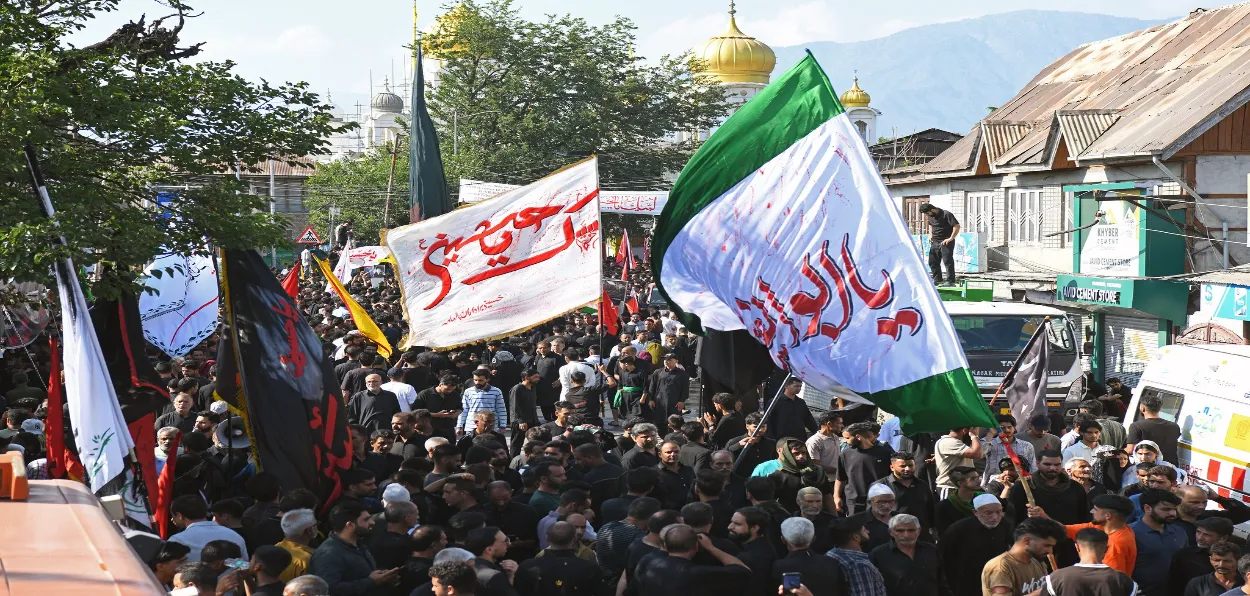
Eman Sakina
The Day of Ashura observed on the 10th of Muharram in the Islamic lunar calendar, holds profound religious and emotional significance for Muslims. For Sunni Muslims, it is a day of fasting and reflection, recalling the salvation of Prophet Musa (Moses) and his people.
For Shia Muslims, however, it is a day of intense mourning, sorrow, and remembrance of the tragic martyrdom of Imam Hussain, the beloved grandson of Prophet Muhammad, at the Battle of Karbala in 680 CE.
Friday Musings
The sorrow associated with Ashura originates primarily from the historical tragedy of Karbala, where Imam Hussain, along with his family and companions, was mercilessly martyred by the forces of Yazid ibn Muawiyah, the then-ruler of the Umayyad Caliphate. Imam Hussain refused to pledge allegiance to Yazid, a ruler widely viewed as unjust and corrupt. His stance was not for power but for the preservation of the true values of Islam—justice, truth, and dignity.
This principled resistance cost him his life. On the scorching desert plains of Karbala (in present-day Iraq), Imam Hussain, his family, including his six-month-old son, and 72 of his loyal supporters were denied water for several days before being slaughtered. His final stand became a symbol of resistance against tyranny and the ultimate sacrifice for faith and justice.
For Muslims, especially the Shia community, the mourning of Ashura is not merely historical—it is deeply spiritual and ethical. It serves as a powerful reminder of standing up for what is right, even at the cost of one’s life. It is about aligning one’s actions with the moral courage shown by Imam Hussain.
The observance of Ashura varies between Sunni and Shia Muslims, though both respect the gravity of the day.
Shia Observances:
Majlis(Gatherings): Shia Muslims hold gatherings known as majlis, where scholars and speakers recount the events of Karbala, highlighting the pain and suffering of Imam Hussain and his family. These gatherings are emotional and often accompanied by poetic elegies (marsiyas) and lamentations.
Latmiyah and Chest Beating (Matam): In many parts of the Shia world, mourners perform symbolic chest-beating, known as matam, to express grief and solidarity with the suffering of Imam Hussain. In some cultures, self-flagellation using chains is practiced, though it is discouraged by many contemporary scholars.
Re-enactments and Passion Plays: In countries like Iran and Iraq, dramatic re-enactments of the Battle of Karbala (ta'ziya) are performed, helping people emotionally connect with the suffering of the martyrs.
Black Clothing and Processions: Mourners wear black to signify their sorrow, and processions are held in streets with chants of grief and loyalty to the household of the Prophet.
Fasting and Charity:While not obligatory, some Shia Muslims also fast and give charity in the name of Imam Hussain, particularly to commemorate his hunger and thirst on the day.
Sunni Observances: Fasting and Reflection
For Sunni Muslims, Ashura is marked by fasting in remembrance of the day when Prophet Musa (AS) and the Israelites were saved from Pharaoh by Allah's command. The Prophet Muhammad (PBUH) recommended fasting on this day, often alongside the 9th or 11th of Muharram, to distinguish it from Jewish practices.
Many Sunnis also use the day to remember the virtues of Imam Hussain and his sacrifice, offering prayers and reading about the tragedy of Karbala, though not engaging in formal mourning rituals.
ALSO READ: Kashmiri environmentalist Manzoor Wangnoo revives twin lakes in Srinagar
Despite the differences in rituals, Ashura remains a day that deeply impacts all Muslims. The legacy of Imam Hussain has transcended sectarian boundaries. His bravery and unwavering commitment to truth continue to inspire people around the world, Muslims and non-Muslims alike. His sacrifice is not just mourned but also revered as a model of moral integrity and steadfastness.
